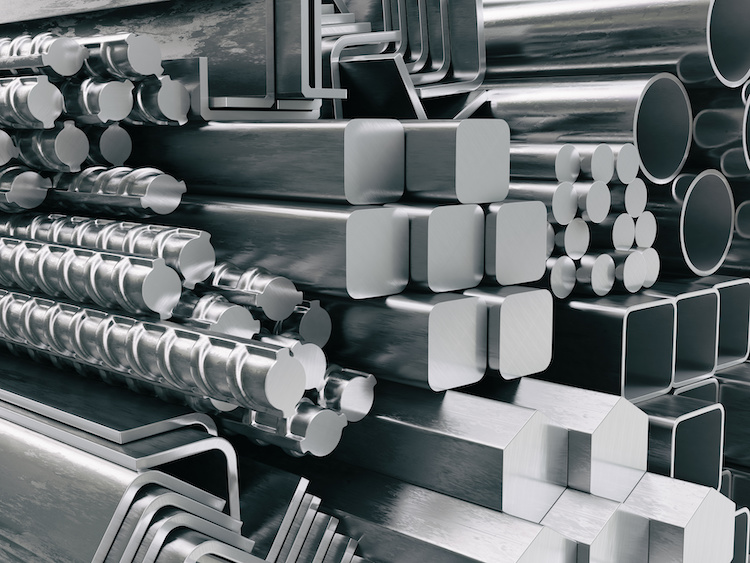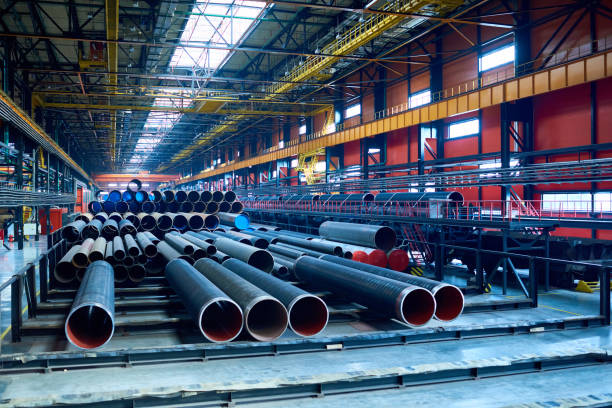The Ultimate Manual on Custom Steel Construction Solutions for Structural Projects
In the world of architectural projects, the importance of customized steel construction options can not be overemphasized. From the fundamental understanding of steel manufacture basics to the intricate process of selecting the most ideal materials, every step in this trip plays a pivotal function in the utmost success of a project.
Recognizing Custom Steel Construction Basics
Looking into the fundamentals of customized steel construction supplies understanding right into the intricate procedure of transforming raw steel right into tailored structural components. Customized steel manufacture is a customized production strategy that involves cutting, shaping, and setting up steel products to develop unique structures according to specific task demands. Comprehending the essentials of personalized steel construction is essential for making sure the effective execution of architectural jobs.
The process typically begins with the assessment of task specifications and design demands. This initial stage involves comprehensive planning and partnership in between fabricators, developers, and designers to determine one of the most appropriate strategy for fabricating the steel components. Precision is crucial during the manufacture procedure, as even small deviations can influence the architectural honesty of the final product.
Different techniques, such as cutting, welding, and shaping, are employed to change raw steel right into the wanted architectural aspects. Experienced producers utilize sophisticated machinery and tools to make certain precision and consistency throughout the manufacture procedure. Quality control measures are implemented to verify the honesty of the produced components before they are set up on-site, making sure conformity with industry criteria and task specs.
Choosing the Right Steel Materials

Primarily, the kind of structural job and its certain requirements play an essential function in determining the most suitable steel materials. Variables such as the load-bearing capacity, environmental problems, and preferred life-span of the framework will certainly dictate the quality and type of steel that must be used.
In addition, the physical residential properties of the steel, consisting of weldability, ductility, and stamina, should straighten with the job's requirements to guarantee optimal efficiency and toughness (steel fabricators melbourne). In addition, factors to consider such as rust resistance, cost-effectiveness, and accessibility of the steel materials must also be taken right into account during the option process
Layout Considerations for Architectural Tasks
Structural tasks demand precise attention to design factors to consider to make sure both capability and safety are focused on throughout the construction procedure. A number of crucial factors should be taken right into account to assure the success of the endeavor when it comes to creating architectural projects. Firstly, the structural honesty of the structure must be a top priority. This includes evaluating loads, anxieties, and ecological variables to determine the most suitable style that visit can stand up to numerous problems with time. Additionally, considerations for the functionality of the structure play an important function in the style procedure. Comprehending the function of the structure and exactly how it will certainly be used assists in producing a style that makes best use of efficiency and usability. Moreover, incorporating elements that boost the aesthetics of the structure can further boost the total style. Balancing functionality, safety and security, and appearance is important in developing successful structural jobs that meet both aesthetic and functional requirements. By meticulously thinking about these aspects throughout the design stage, architects and designers can ensure the architectural project's success from conception to conclusion.
Enhancing Construction Processes for Efficiency

Additionally, implementing lean manufacturing concepts can substantially improve efficiency in steel manufacture. By reducing waste, maximizing process, and boosting communication between various groups associated with the construction procedure, tasks can be completed much more promptly and with better requirements.
Moreover, developing a well-organized production routine and process can aid in focusing on jobs, assigning resources efficiently, and conference task target dates promptly. By having a clear plan in place and on a regular basis monitoring progress, any potential bottlenecks or delays can be determined and dealt with immediately, making sure reliable and smooth manufacture procedures for architectural tasks.
Top Quality Control and Task Administration in Steel Construction
To make sure the effective execution of steel construction projects, meticulous quality control measures and effective task monitoring techniques are necessary elements in preserving precision and meeting customer assumptions. Quality control in steel fabrication entails strenuous assessments at different stages of the manufacture procedure to confirm compliance with task requirements and market standards. This consists of product testing, dimensional checks, and weld examinations to make certain structural stability and security.
Job management plays an important duty in working with the different aspects of steel fabrication jobs, such as organizing, source allotment, and interaction amongst employee. A well-defined project plan with clear purposes, turning points, and timelines assists to keep track of progress and address any type Visit This Link of prospective problems proactively. Effective communication in between all stakeholders, consisting of customers, makers, contractors, and engineers, is vital for making sure that the task progresses smoothly and meets the wanted quality standards.
Final Thought
Finally, custom steel construction plays an important role in architectural tasks by offering customized services utilizing the appropriate products and style factors to consider. Performance in construction processes, quality control, and reliable job monitoring are crucial for effective outcomes. By understanding the basics of personalized steel fabrication and implementing structured procedures, task groups can provide high-quality and resilient structures that fulfill the certain demands of their clients.
Custom steel manufacture is a specialized manufacturing strategy that involves cutting, shaping, and assembling steel products to produce distinct structures according to particular task demands.To make sure the effective implementation of steel fabrication tasks, careful high quality control actions and reliable job management methods are essential parts in keeping accuracy and meeting customer assumptions. Quality control in steel fabrication entails strenuous examinations at various stages of the construction procedure to verify conformity with job specifications and market criteria (Alpha reo).Task administration plays a critical duty in working with the different elements of steel construction jobs, such as scheduling, resource allocation, and communication amongst group participants.In verdict, custom steel manufacture plays a critical role in structural tasks by supplying tailored options making use of the best materials and style factors to consider